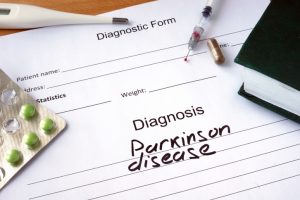
What is Parkinson’s disease?
Parkinson’s disease is a progressive disorder that affects the nervous system. As it gets worse, what starts off as slight tremors may progress to stiffness and slowing of movement. Speech,
Although there is no current cure for Parkinson’s disease, treatment can help reduce symptoms.
Study: Parkinson’s disease may begin in the gut
Researchers believe that Parkinson’s begins in the gastrointestinal tract and moves its way through the vagus nerve. They saw that prior to a diagnosis of Parkinson’s disease, patients experienced gastrointestinal problems such as constipation.
This is the first study to link the vagus nerve to Parkinson’s disease on humans. Prior studies were conducted on animals.
Researchers said the next steps are to explore this connection further and understand how neurological damage can occur. This may aid in preventing Parkinson’s disease.
Managing Parkinson’s disease
In the meantime, those living with Parkinson’s disease can undergo treatment to reduce symptoms. Common symptoms of Parkinson’s disease include tremors, slow movement, stiffness, speech impairments and loss of automatic movements.
Medical treatments include the administration of medications and even surgery to stimulate the brain. Of course, it’s important to note that medications come with many side effects. It’s important to optimize lifestyle changes as well, to improve function.
Common Lifestyle changes
Some common lifestyle changes people with Parkinson’s disease can employ are healthy eating, exercise and physiotherapy, reducing their risk of fall and injury and using the assistance of an occupational therapist. Implementing these changes depend on the severity of each person’s case.
Until further research is conducted on the gut and brain connection, how to prevent Parkinson’s disease is still unclear. Practicing healthy lifestyle habits, though, may help.
Related Reading:
Parkinson’s disease: Real cause revealed
For years little was known about Parkinson’s disease. Without a cause a cure could not be found. But after extensive research we’re closer to a potential cure as scientists have now discovered a cause for Parkinson’s disease. But before we get into this new breakthrough, let’s discuss further about this debilitating disease. Continue reading…
When tremors and shaking could be something serious
Good news if you know someone suffering from Parkinson’s disease, the degenerative condition known for its telltale shakes, tremors and difficulty with simple tasks. A newly discovered gene could lead to an exciting new treatment. The groundbreaking study of Parkinson’s disease was conducted by the University of California and led by Dr. Ming Guo, a practicing neurologist and professor of neurology and pharmacology. Continue reading…
Sources:
http://www.sciencedaily.com/releases/2015/06/150623103609.htm
http://www.mayoclinic.org/diseases-conditions/parkinsons-disease/basics/prevention/con-20028488
http://www.healthline.com/human-body-maps/vagus-nerve